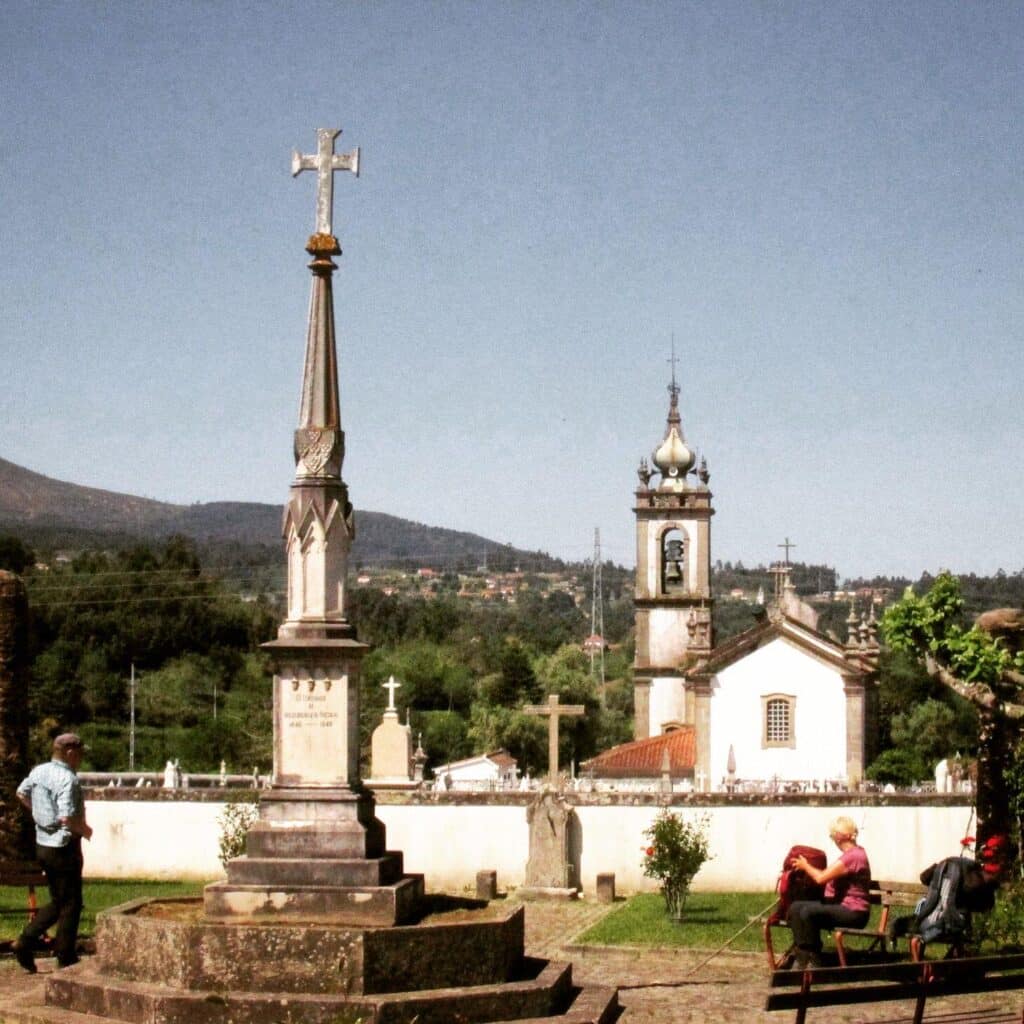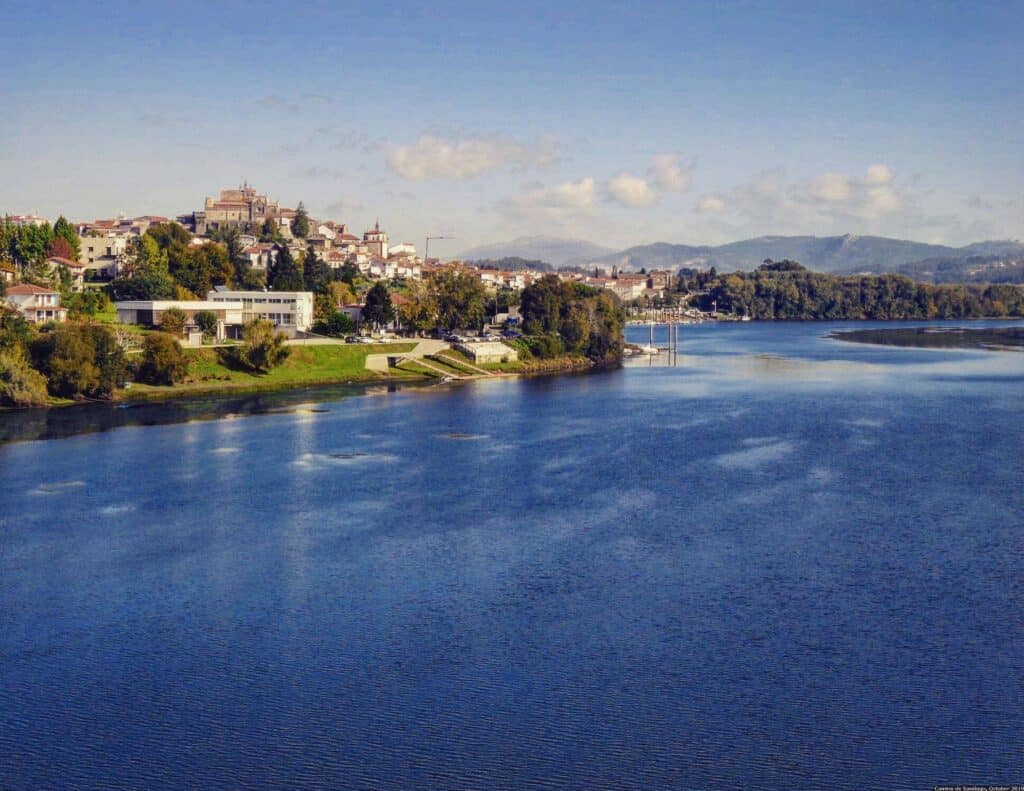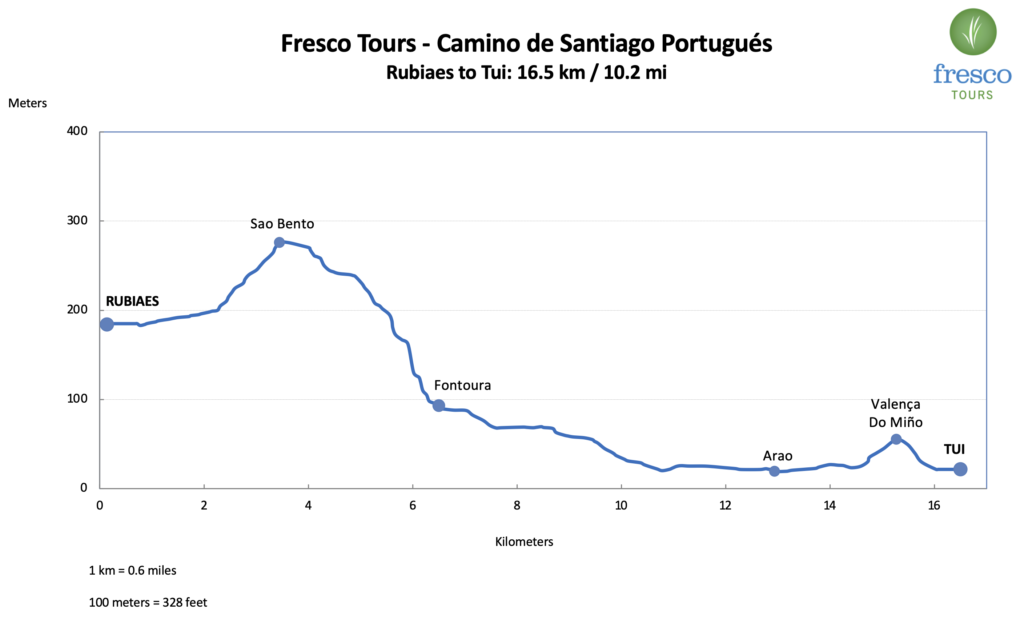This morning we will walk from the town of Rubiães to Tui. Today we will enjoy the last of the walks amongst the Portuguese forests as we will soon be entering Spain. On our way to the border we will walk through towns like Fontoura and Arão with their cruzeiros (stone crosses) and 18th century churches.

Before crossing the border, we’ll have one last picnic lunch in Portugal and a coffee in the medieval walled city of Valença do Minho. The Roman Road that connected Braga to Lugo passed through the town, and it is said that Emperor Augustus may have camped in the Castellum de Valença during one of his journeys.
The first walls of the famous Valença fortress were built in the 13th century and then expanded upon in the 17th century, and the structure is an architectural masterpiece. With a perimeter of 5km overlooking the river this fortress successfully defended attacks from both France and Spain along the northern Portuguese border. The views of the fortress from the bridge are breathtaking. After taking it in we will cross the bridge and the Portugal-Spain border to continue our journey into Tui, our destination for today. There is no longer an immigration or customs post on either side of this bridge as both countries have subscribed to the Schengen Agreement for free transit of persons within the European Union, but don’t forget to change your watches!

Our walk today ends just before we enter the historic quarter of Tui in Spain. It’s time to rest and celebrate our arrival to Galicia and Spain. Tomorrow we will have time to explore Tui, its medieval quarter and its cathedral.

Valença do Minho
What’s in a name? – Valença do Minho
Like every other city named Valença or Valencia on the Iberian Peninsula, Valença do Minho was founded by the Romans and its name apparently comes from the Latin word ‘valentia’, which translates as vigour, strength or courage.
However, current Valença was called ‘Contrasta’ until the 13th century, when it was then renamed Valença and the old Roman nameof ‘Valentia’ recovered. The ‘do Minho’ part means ‘of the Minho’. The Minho is the river you will cross, and which becomes the Miño in Spain.






